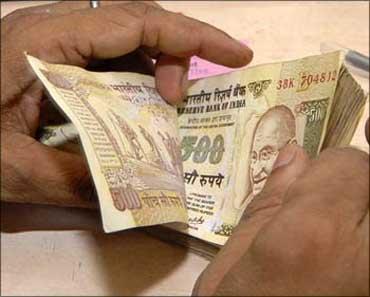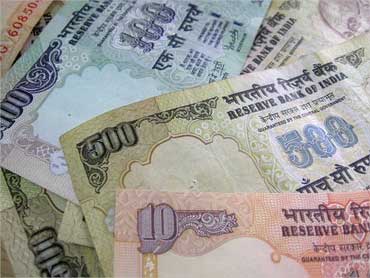 | « Back to article | Print this article |
Investments for saving tax is just not enough
As the time for readying investment declarations for tax purposes approaches, some tips on what to do.
As the calendar year comes to an end, employees are asked to file investment declarations to their companies.
Depending on these, companies will subtract the tax deduction at source from the salary each month until the end of the financial year in March.
For many who have not yet completed their tax planning, this could result in making last-minute investment decisions, with an aim to save as much tax as possible.
Click NEXT to read further. . .
Investments for saving tax is just not enough
Employees can get tax deduction benefits under sections 80C, 80D, 80G and 80CCF of the Income Tax laws.
While the maximum tax deduction benefit under 80C is limited to Rs 100,000, one could extend this by claiming under 80D, 80G and 80CCF.
Deductions on Mediclaim policies bought for self, spouse, children and senior citizens can be availed under section 80D.
Those investing in infrastructure bonds like that of IDFC, L&T infrastructure bonds can claim benefits under section 80CCF.
Section 24B allows one to claim benefits for the interest portion of one's house property under mortgage and section 10 (13A) allows one to claim deduction on his house rent allowance, subject to certain conditions.
Click NEXT to read further. . .
Investments for saving tax is just not enough
However, 80C remains the most popular, as a large number of investments avenues come under it.
So, one could invest in Public Provident Fund, life insurance for self, spouse and children, National Savings Certificate, National Savings Scheme, children's tuition fees, ELSS mutual funds and the principal repaid on your mortgaged property.
According to Arvind Laddha, a chartered accountant, there have been instances where risk-averse individuals invest in ELSS mutual funds, unaware of the risks involved in equity-related investing.
Similarly, investors with short-term goals end up investing in infrastructure bonds, that have a lock-in of five years.
Click NEXT to read further. . .
Investments for saving tax is just not enough
"Clearly, since the number of I-T sections governing tax saving options are limited, one needs to ensure he does not go wrong with the investment instruments chosen," he adds.
Most salaried people lose the opportunity to claim extra benefits in their rush to exhaust the minimum tax saving benefit of Rs 100,000.
With enough planning and time in hand, one could pick the appropriate investment option.
Under section 80D itself, those in the highest tax bracket with a mediclaim for his family could claim Rs 15,000, he could claim another Rs 20,000 if he has parents who are senior citizens.
Even otherwise, deduction for parent's mediclaim is Rs 15,000.
He may also claim another Rs 6,100 as deduction for investments in infrastructure bonds.
Click NEXT to read further. . .
Investments for saving tax is just not enough
Certified financial planner Suresh Sadagopan feels conservative investors should stick to PPF.
And, ELSS products, with the lowest lock-in of three years, could be looked at by investors who don't mind equities but want to invest purely for tax-saving.
Another advice is to avoid long-term products like Ulips or any insurance needing regular premium payments until the final direct taxes code is implemented next year.
"As of now, under the DTC, insurance maturities are to be tax-free only if their premium has been less than five per cent of the sum assured during the whole premium paying term. These riders could change. So, it is best to wait," says Sadagopan.
Click NEXT to read further. . .
Investments for saving tax is just not enough
Typically, companies insist on proof of investment declarations.
In case one has investments like an insurance policy or tuition fees that may be coming for renewal or payment after the due date, he may have to provide earlier receipts until the latest can be filed at a later date.
"Lack of proof or even a computing mistake could lead to excess tax being deducted from the employee's salary.
Such excess TDS could be adjusted against one's other income," says Homi Mistry, partner, Deloitte Haskins & Sells.
But this is possible only if the TDS has still not been deducted. In case it has been, one would have to ask for a refund from the I-T authorities.






